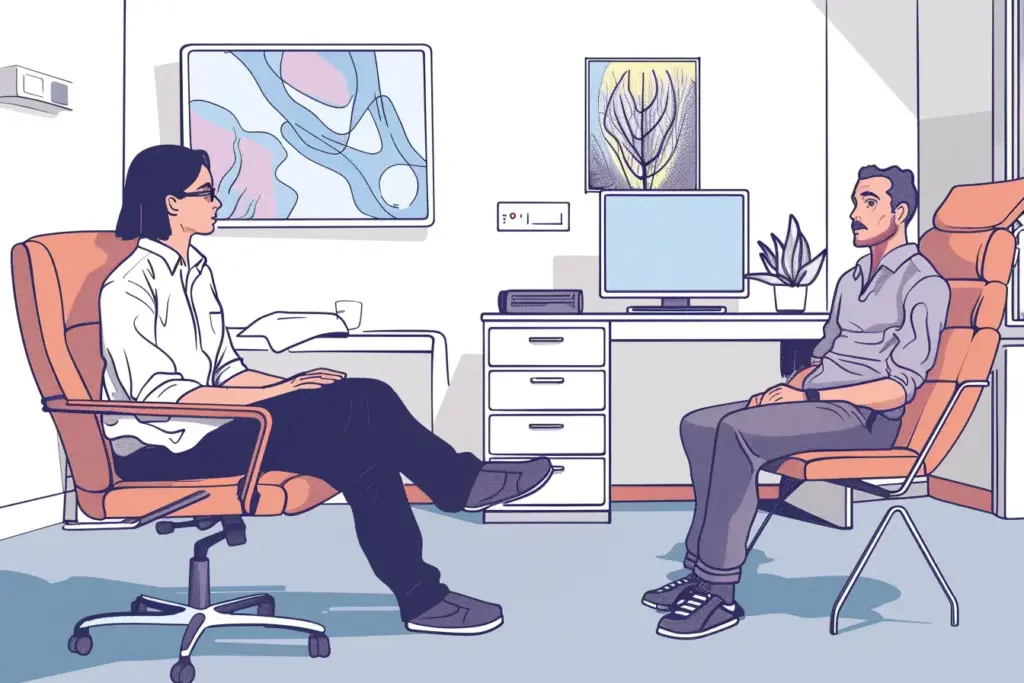Understanding Stress and Anxiety
What is Stress?
Stress is the body’s response to any demand or challenge. When faced with a threat or pressure, whether real or perceived, our body releases hormones such as cortisol and adrenaline. This “fight or flight” response can be beneficial in short bursts, helping us to react quickly to dangerous situations. However, chronic stress can be detrimental to our health, affecting our physical and emotional well-being.
What is Anxiety?
Anxiety is a feeling of fear, unease, and dread. It may cause sweating, restlessness, and a rapid heartbeat. It is a normal stress response. For example, you might feel anxious when faced with a problem at work, before taking a test, or before making an important decision. However, anxiety disorders are types of mental health disorders that involve excessive fear or anxiety that affects one’s daily activities.
How Do They Impact Us?
The effects of stress and anxiety are not solely mental; they can cause physical symptoms and affect overall health. Chronic stress and unmanaged anxiety can lead to high blood pressure and heart disease and can weaken the immune system. Mentally, they can lead to burnout, depression, and a decrease in the quality of life. Recognizing how these conditions manifest in our lives is the first step to managing them effectively.

Early Signs You Need to Manage Stress and Anxiety
Recognizing the Symptoms
It’s crucial to recognize the early signs of stress and anxiety so you can take steps to manage them before they become more severe. Symptoms may include:
- Constant worry or anxiety
- Feelings of being overwhelmed
- Irritability and mood swings
- Difficulty concentrating
- Changes in sleep patterns, such as insomnia
- Physical symptoms like headaches, muscle tension, or nausea
The Importance of Early Detection
Early detection of stress and anxiety is essential for effective management. By acknowledging these early signs, individuals can implement strategies to prevent the escalation of these conditions. Early intervention can improve the outcome and prevent related health issues. It’s not only about preventing future health problems but also about improving your quality of life and ensuring you are functioning your best in your daily activities.
Understanding these foundations sets the stage for exploring practical tips and techniques to manage stress and anxiety effectively, as outlined in the article’s subsequent sections.




12 Tips for Managing Stress and Anxiety
Managing stress and anxiety involves lifestyle changes, techniques, and tools that can significantly improve your overall well-being. Here are twelve practical tips to help you cope with stress and anxiety effectively:
- Tip 1: Deep Breathing Techniques
- Deep breathing exercises can help calm your mind and reduce anxiety. Techniques such as diaphragmatic or belly breathing encourage full oxygen exchange, slowing the heartbeat and lowering or stabilizing blood pressure.
- Tip 2: Regular Physical Activity
- Exercise is a powerful stress reliever. It can improve your mood, enhance your overall mental health, and help you manage anxiety. Walking, jogging, yoga, or dancing can significantly boost your mood and decrease stress.
- Tip 3: Setting Realistic Goals
- Manage stress by setting realistic goals and breaking up large projects into small, manageable tasks. Prioritize these tasks and work through them one at a time. This approach can prevent you from feeling overwhelmed and keep your anxiety in check.
- Tip 4: Prioritizing Sleep
- Quality sleep is crucial for managing stress and anxiety. Aim for 7-9 hours per night and establish a relaxing bedtime routine to help you wind down and get a better night’s sleep.
- Tip 5: Establishing a Morning Routine
- Starting your day structured can enhance your mood throughout the day. A consistent morning routine can reduce stress and anxiety by eliminating the rush and unpredictability of your mornings.
- Tip 6: Keeping a Journal
- Journaling can be a therapeutic way to express what you are feeling and reduce anxiety. Writing down your thoughts and feelings can help you manage stress and cope with depression.
- Tip 7: Mindfulness and Meditation
- Mindfulness and meditation can improve your ability to regulate emotions. Regular practice can help decrease stress and anxiety by bringing your attention to the present moment without judgment.
- Tip 8: Healthy Eating Habits
- A balanced diet can affect your mood and energy levels, reducing symptoms of stress and anxiety. Incorporate a variety of fruits, vegetables, lean proteins, and whole grains into your diet.
- Tip 9: Limiting Caffeine and Alcohol
- Caffeine and alcohol can aggravate anxiety and trigger panic attacks. Reducing your intake of coffee, tea, soda, and alcohol may help lower your anxiety levels and improve your sense of well-being.
- Tip 10: Talking to Someone
- Sharing your thoughts and concerns with someone you trust can help relieve stress and anxiety. Talking about your worries and stresses with a friend, family member, or professional can make them seem less daunting.
- Tip 11: Time Management Strategies
- Effective time management can help you avoid feeling rushed and overwhelmed, which can reduce stress. Techniques such as making to-do lists and prioritizing tasks can be beneficial.
- Tip 12: Learning to Say No
- It’s essential to be mindful of your limits. Overcommitting can lead to stress, so knowing when to say no is crucial. This can help you manage your stress levels and decrease your anxiety.
Implementing these tips into your daily life can help you manage and reduce stress and anxiety, leading to a healthier, more balanced life.

Incorporating Tips into Your Routine
Implementing the tips for managing stress and anxiety into your daily life can seem challenging at first, but with consistent practice, it becomes more manageable. Here’s how to make these tips a regular part of your routine:
- Start Small: Choose one or two doable tips and start there. Once these become a habit, add more techniques to your routine.
- Set Reminders: Use your phone or calendar to set reminders for activities like meditation, exercise, or breaks. This can help you stay committed to your stress management plan.
- Tailor Strategies to Fit Individual Needs: Everyone’s different, so what works for one person might not work for another. Feel free to adjust these tips to suit your circumstances and preferences better.
By making these changes gradually and consistently, you can build a routine that supports your mental health and helps you manage stress and anxiety more effectively.
Technology and Tools to Help Manage Stress and Anxiety
In the digital age, many apps and gadgets are designed to help manage and reduce stress and anxiety. Here are some types of technology that can assist you:
- Apps for Meditation and Mindfulness: Apps like Headspace and Calm offer guided meditation sessions to help you practice mindfulness to reduce stress.
- Fitness Trackers: Devices such as Fitbit and Apple Watch can remind you to move around and track your physical activity, essential for stress management.
- Sleep Trackers: Tools like the Sleep Cycle app or wearable technology can help you understand your sleep patterns and improve your sleep quality.
Utilizing these technological aids can support your journey to managing stress and anxiety, making incorporating healthy habits into your daily life more accessible.
When to Seek Professional Help
Recognizing when you need more than self-help is crucial in managing stress and anxiety. Here are signs that it might be time to seek professional assistance:
- Persistent Feelings of Overwhelm: If stress and anxiety interfere with your daily activities for an extended period, it may be time to seek help.
- Physical Symptoms: When stress and anxiety manifest physically, such as chronic headaches, digestive issues, or a weakened immune system, professional help can be necessary.
- Impact on Social and Work Life: If your ability to function in social settings or at work is impaired, consulting a professional can provide strategies to manage these challenges.
Depending on individual needs, professional support can vary from counseling and therapy to medication. If you’re struggling to manage stress and anxiety on your own, don’t hesitate to seek professional help. It’s a sign of strength, not weakness, to seek your support to live a healthier, more balanced life.

